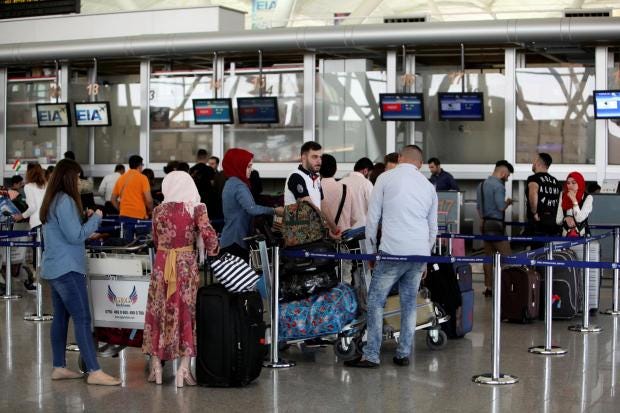Independence and Ultimatums
"The government of Canada is taking all reasonable steps to ensure that the Government of Iraq and the Kurdish Regional Government of Iraq provide the requisite commitments that any equipment provided from the Government of Canada will be used in an appropriate manner."
"Canada will ensure that end-user agreements are fully approved and in place before any equipment is delivered."
Capt. Patricia Brunelle, Canadian Forces spokeswoman
"It is bad enough that Canada and other members of the anti-ISIL coalition have failed to develop any meaningful strategy for heading off this entirely foreseeable crisis."
"It is worse still for Canada to bury its head in the sand and continue supplying weapons to the Kurdish Peshmerga. How is such action possibly consistent with support for a unified Iraq?"
(former) Canadian diplomat Peggy Mason, president, Rideau Institute
"The United States does not recognize the . . . unilateral referendum."
"The vote and the results lack legitimacy, and we continue to support a united, federal, democratic and prosperous Iraq."
U.S. Secretary of State Rex Tillerson, Washington
 |
| Iraqi Kurdish leader Masoud Barzani, center, arrives to vote in the independence referendum at a polling station near Irbil, capital of the semiautonomous Kurdish region, on Monday. (Ahmed Deeb/AFP/Getty Images) |
"I called his excellency Prime Minster Abadi on this specific issue and I explained to him that this referendum is a normal, legal right of our people, and that afterwards we want negotiate the results of the referendum in a peaceful way through dialogue. He had an understanding of that. We told him that we want to solve this issue with Baghdad through peace and not through violence. He was receptive and understanding. He was positive."
"The referendum issue is about the destiny of a whole people. That’s why this issue is bigger than any other political framework, or any political parties, or any political problems within the party system. I’m sure that the majority of the people in Kurdistan are with the referendum. The supporters of the political parties, the majority of them are also pro-referendum. We had a very positive meeting with all the political parties, and they were all supporting it."
"When we have a referendum, it is to have that mandate from the people, to show to the domestic and to the external players what the Kurdish people want. Once the people decide and vote, then as I said, the first place we are going to start serious, peaceful negotiations and dialogue with is with Baghdad, to achieve and fulfill the wishes of the people."
"The referendum is for independence, and I want the others to understand this: Once we do the referendum and start dialogue, it doesn’t mean that we give up on the wishes of the people. So the referendum is for independence and its result must be implemented."
Leader of Iraqi Kurdistan, President Masoud Barzani
 |
| Passengers queue at the check-in counters at Irbil International Airport in Iraq on 27 September 2017 Reuters |
The occupying colonialist powers who promised the Kurds a hundred years ago that when new borders were struck for Turkey, Syria, Iran and Iraq, a portion of each would be set aside for a Kurdish homeland, betrayed the Kurds. Ever since, the Kurdish ethnic minorities in those countries have been discriminated against, and their lives made utterly miserable when in fact they weren't being subject to violence. They persevered and they proved themselves capable of self-governance.
Canada's ambivalence in stepping in after the tribal and sectarian implosion of Iraq, to instruct its military to help train and supply the Kurdish Peshmerga which proved itself the only reliable fighting force in the Middle East capable of challenging the murderous Islamic State of Iraq and the Levant group comes up hard against the government's diplomatic stance in echoing the opinion of its NATO allies by insisting on Iraqi insolubility.
Condemning, in other words, the Kurds who continue to aspire toward national independence, to remain subservient to what to them is a foreign government, one which in the past has denied their most basic human rights. In so doing, choosing to sit on the fence, despite continuing to arm Kurdish forces after the referendum for independence. A referendum whose purpose is to persuade the government in Baghdad to sit and discuss a situation that requires an inevitable conclusion.
Instead, Baghdad has slammed the door of negotiations shut in Kurdish President Massoud Barzani's face. Iraqi Prime Minister Haider al-Abadi has committed to measures to ensure that Kurdistan remains within the orbit of Iraq. Ordering the Kurdish region to submit control of its airports to Iraqi federal authorities, otherwise a total flight ban would be instituted with Iraq's Transport Ministry ordering international airlines to no longer service Irbil, the Kurdish capital.
Turkey has followed suit, as has Egypt, Iran, Syria and Saudi Arabia, with Turkey threatening trade sanctions and not ruling out military action. The sneering reference by Turkey to the sole ally backing Kurdish aspirations being Israel, emphasizes Kurdish isolation in a hostile-to-independence region, where Arab (and Persian) states lock forces, setting aside their own intractable and often violent differences to stand in unity against sovereign Kurdistan.
Iraq's Shiite dominated parliament has called upon al-Abadi for troops to be deployed to the disputed Kurdish-majority areas, including the city of Kirkuk, representing one-third of the oil riches of Iraq and which Kurdistan claims as its own. It won't take long to see what results from this regional animosity toward Kurdistan independence. Al-Abadi has all the support he would like to "enforce the rule of the federal authority in the Kurdish region with the power of the constitution."
Labels: Conflict, Independence, Iraq, Kurdistan, Threats
0 Comments:
Post a Comment
<< Home